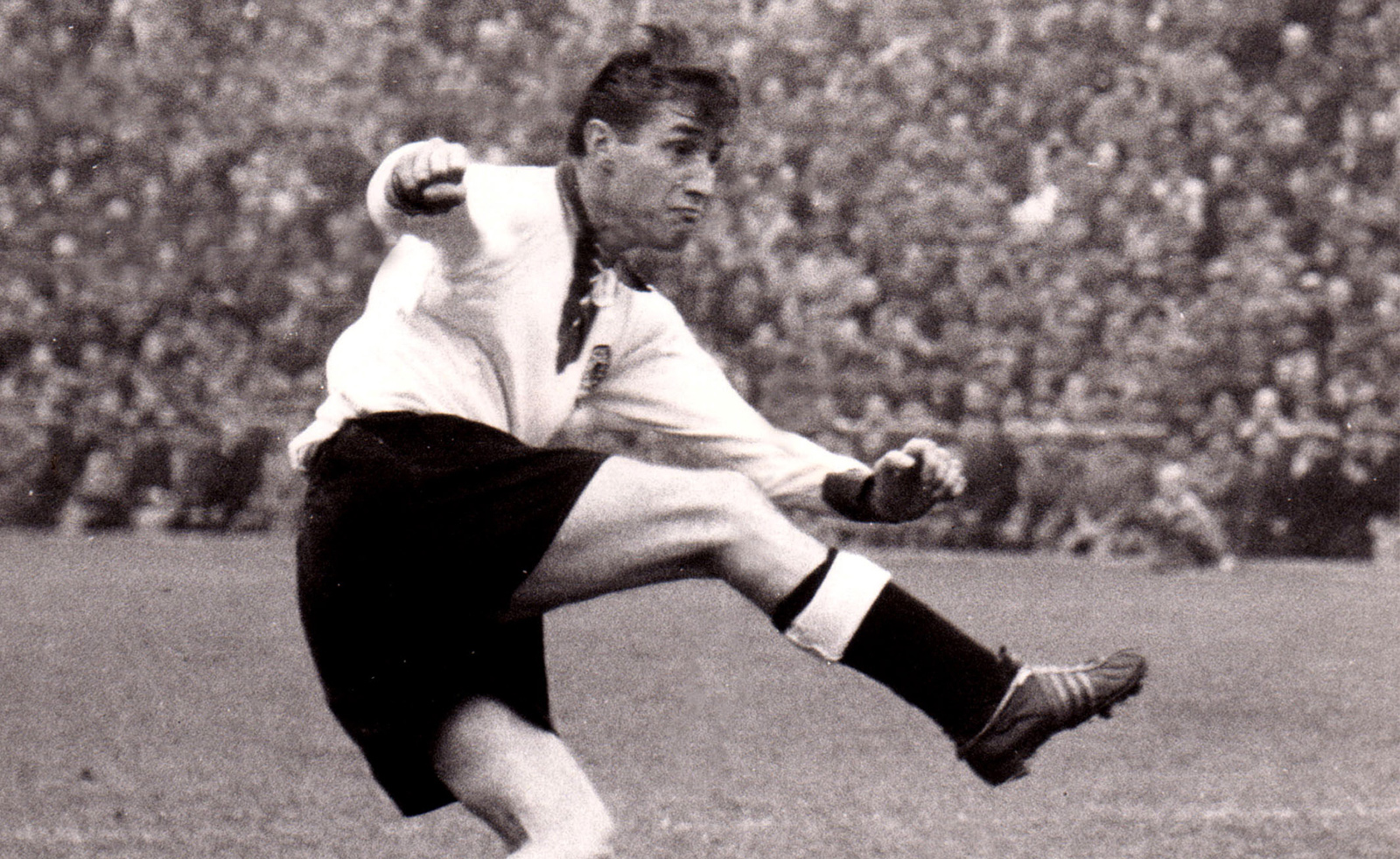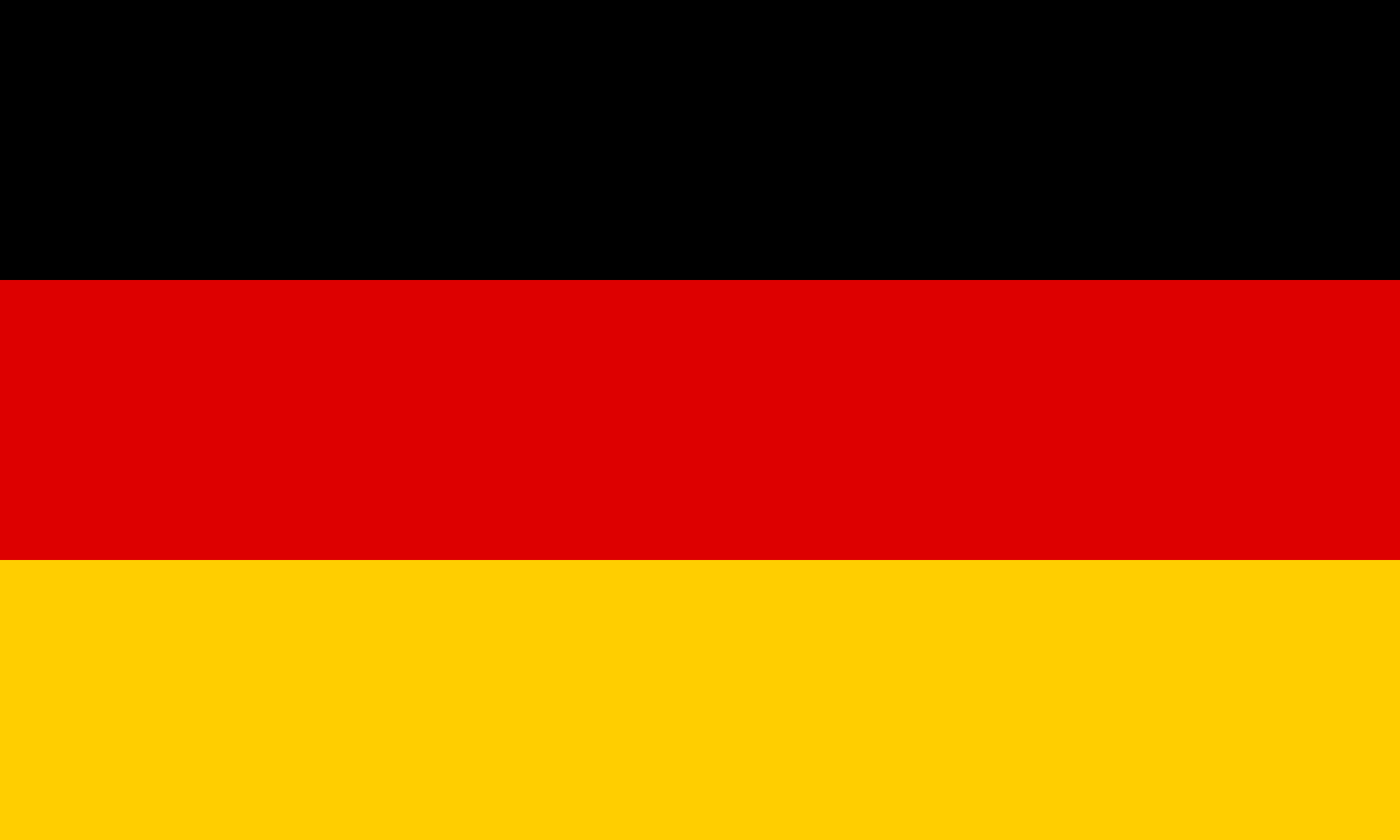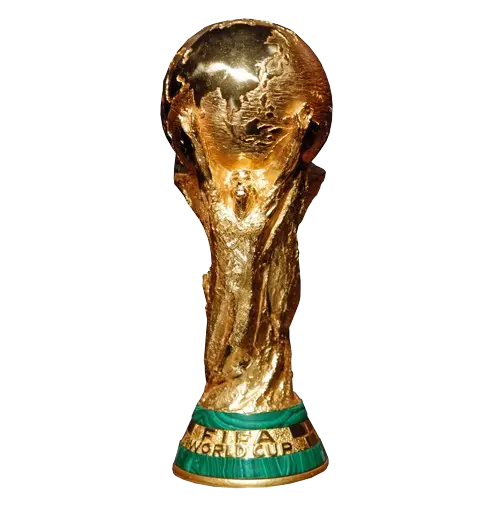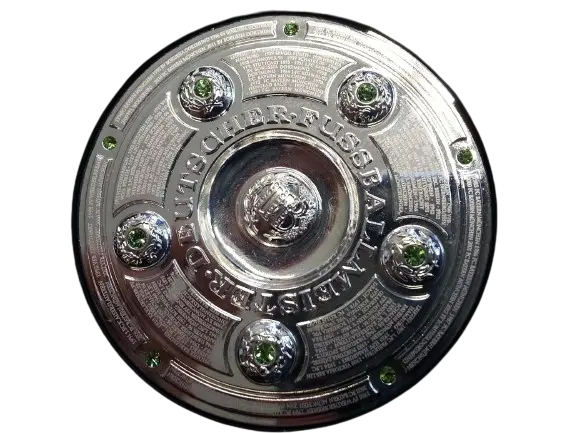Fritz Walter
Fritz Walter is one of the greatest German players in history. An excellent playmaker, he led Germany to its first major international trophy, the 1954 World Cup.

Games
Goals
Assists
Trophies
1939/59 Kaiserslautern (ALL) 511 matches, 541 goals
1943 TSG Diedenhofen (Thionville) (ex-ALL) (Guest)
With the National Team :
61 caps, 33 goals
(Friendly matches: 47 caps, 28 goals)
(World Cup qualifiers: 3 matches, 2 goals)
(World Cup: 11 matches, 3 goals)
1st cap: 14 July 1940 against Romania (9-3)
Last cap: 24 June 1958 against Sweden (1-3)

Friedrich "Fritz" Walter
Born October 31, 1920 in Kaiserslautern (GER)
Died June 17, 2002 in Enkenbach-Alsenborn (GER)
German, Attacking-Midfielder, Second Striker, 1m75
The child from Kaiserslautern
Fritz Walter was born on October 31, 1920 in Kaiserslautern, Germany, where he spent his entire career, a career that lasted 20 years, between 1939 and 1959. Team captain and high-flying goal scorer, he was the symbol of the German selection for nearly 18 years.
At club level, he allowed his club to perpetuate its status as a colossus of German football and won 2 German championships in 1951 and 1953. Also playing in the Oberliga Südwest, the club crushed the competition and won all editions of this regional championship between 1947 and 1957 with the exception of the 1952 edition.
A crazy story during World War II
The eldest of 5 siblings, he was the son of the manager of the 1.FCK inn (formerly called FV Kaiserslautern). A family affair, he played his first match for the club against SV Niederauenbach and scored four goals. Very quickly, he was classified as one of the best players in his nation, and on July 14, 1940 he played for the national team of the Mannschaft, scoring a hat-trick against Romania.
Unfortunately, the incredible acceleration of his career coincided with the beginning of the Second World War, and between 1943 and 1950, he could not play international matches, while for many it was the best period of his career. Enlisted in the Wehrmacht, he initially stayed in Kaiserslautern before being sent to France, in Lorraine.
Between April and June 1943, he played as a guest in the TSG Diedenhofen team, now FC Thionville. After a few matches in this small club, he was deployed to Corsica, Sardinia and then to the island of Elba. He was captured and imprisoned by the Soviet army in Romania. There, the treatment was harsh, and his fate was decided by a stroke of luck, he was recognized by a Hungarian soldier, who admired the player, and made the German pass for an Austrian who had been forced to join the German army. This gesture spared him from deportation to a Siberian gulag. He finally returned to Germany at the end of the war, on October 28, 1945.
The first ultimate legend of German football
During 1951, he returned to the German national team and at 30, he still seemed to have the same talent, a talent that could have been seen more of if Germany had not been excluded from the 1948 Olympic Games and the 1950 World Cup. But hey, the player would make up for these lost years in the most beautiful way.
At almost 34 years old, he was present at the 1954 World Cup, in the role of captain of this German team. He took his team to the top of the world by winning the competition to everyone's surprise against Hungary of Puskas, Kocsis, Hidegkuti, Bozsik and Czibor. This "Miracle of Bern" would be one of the greatest feats in the history of football, the German press was shocked, no one expected Germany to reach this level, especially in a final where they lost 2-0 before finally winning the match 3-2.
This date coincides with a new status for Walter, who is then a superstar of Europe and no longer just of Germany. He has national glory. Moreover, the player will not stop there, because 4 years later, he participates at 37 years old, in the World Cup 1958, again as a starter. But this time, Germany must be content with a 4th place. In total, he participates in 61 matches for Germany, including 30 times as captain and scores 33 times.
Fritz Walter also shines for another wonderful quality, his loyalty to his club of always, Kaiserslautern. The player will have refused the offers of Nancy, Real Madrid or even AC Milan. He plays his last match with the 1.FCK on June 20, 1959. A gala match against the Racing Club de Paris won 4 goals to 2. He then retires at the age of 38.
Trophies :

World Cup x1
- 1954 (West Germany)

4th at World Cup x1
- 1958 (West Germany)

Bundesliga x2
- 1951 (Kaiserslautern)
- 1953 (Kaiserslautern)

Vice-Champion Bundesliga x3
- 1948 (Kaiserslautern)
- 1954 (Kaiserslautern)
- 1955 (Kaiserslautern)
Oberliga South West x10
- 1947 (Kaiserslautern)
- 1948 (Kaiserslautern)
- 1949 (Kaiserslautern)
- 1950 (Kaiserslautern)
- 1951 (Kaiserslautern)
- 1953 (Kaiserslautern)
- 1954 (Kaiserslautern)
- 1955 (Kaiserslautern)
- 1956 (Kaiserslautern)
- 1957 (Kaiserslautern)
Vice-Champion Oberliga South West x2
- 1946 (Kaiserslautern)
- 1958 (Kaiserslautern)
Individual Trophies :
- Top scorer in the Oberliga Southwest in 1947 (24 goals) and 1953 (38 goals) (Kaiserslautern)
- Named to the 1958 World Cup Team of the Tournament
- Voted Germany's "Golden Player" of the last 50 years by UEFA in 2003
- FIFA Order of Merit in 1994
- Awarded the Grand Cross of Merit of the Federal Republic of Germany
- Awarded the Silbernes Lorbeerblatt medal
- Awarded the FIFA Gold Medal of Merit in 1995
- Inducted into the German Sports Hall of Fame in 2008
- Appointed Honorary Captain of the German National Football Team
- Appointed Honorary Citizen of the City of Kaiserslautern